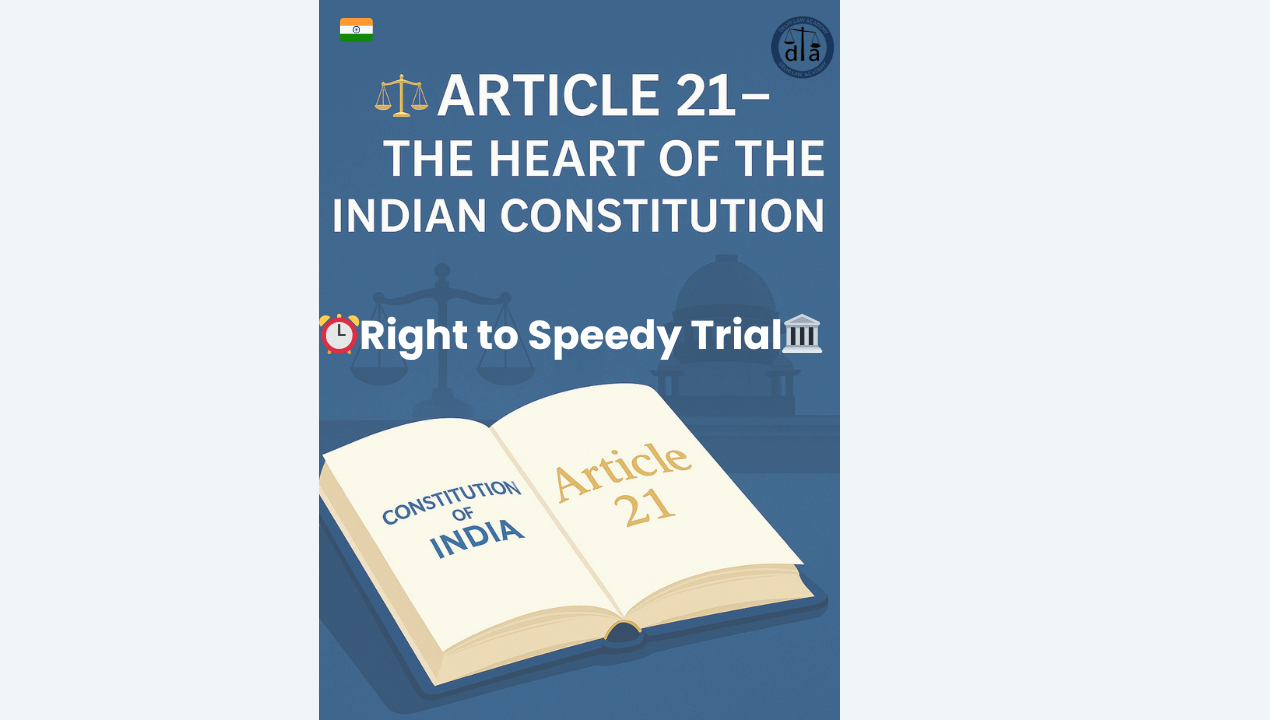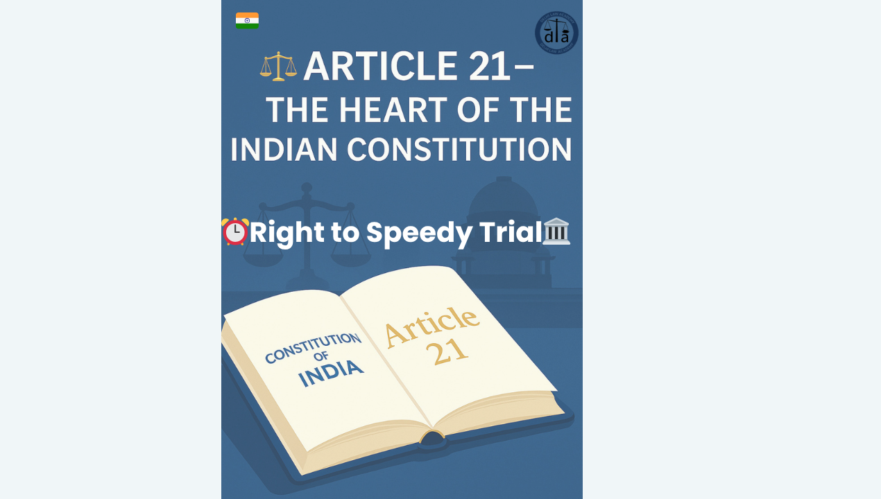
⚖️ Right to Speedy Trial | Article 21 of the Indian Constitution
The Right to Speedy Trial is an essential part of the Right to Life and Personal Liberty guaranteed under Article 21 of the Indian Constitution.
Justice delayed is justice denied — this principle ensures that no individual is subjected to unnecessary detention, harassment, or prolonged legal uncertainty.
📜 Constitutional Foundation
Although not expressly mentioned in the Constitution, the Right to Speedy Trial has been read into Article 21 by judicial interpretation.
It forms an integral part of the guarantee of a fair, just, and reasonable procedure established by law.
“A procedure which keeps an accused person in jail for years without trial cannot be regarded as reasonable, just, or fair.”
— Justice P.N. Bhagwati, Hussainara Khatoon v. State of Bihar (1979)
⚖️ Landmark Judgments on Right to Speedy Trial
- 🕊️ Hussainara Khatoon v. State of Bihar (1979) – The Supreme Court declared that the right to a speedy trial is a Fundamental Right under Article 21. The case exposed the plight of thousands of undertrial prisoners languishing in jails.
- ⏰ A.R. Antulay v. R.S. Nayak (1992) – The Court laid down broad guidelines for determining if the delay in trial violates the accused’s rights.
- ⚖️ Abdul Rehman Antulay v. R.S. Nayak (1992) – Reaffirmed that a balance must be struck between the rights of the accused and the need for a thorough investigation.
- 🧾 P. Ramachandra Rao v. State of Karnataka (2002) – The Court refused to fix a specific time limit but emphasized that trials must proceed without unreasonable delay.
🏛️ Scope and Application
The Right to Speedy Trial applies to all stages of criminal proceedings:
- 📜 Investigation stage – Police must file charge-sheets without undue delay.
- ⚖️ Trial stage – Courts must ensure proceedings are conducted efficiently.
- 🕒 Post-trial stage – Appeals and revisions must be resolved within reasonable time limits.
Any delay that is oppressive, unjustified, or caused by administrative negligence can violate Article 21.
👥 Rights of the Accused and Duties of the State
The Right to Speedy Trial is not only for the accused but also serves public interest by ensuring confidence in the justice system.
The State has a constitutional duty to provide adequate judges, staff, and infrastructure to avoid backlog and delay.
Prolonged delay without justification may lead to quashing of proceedings or release of the accused on constitutional grounds.
📘 Relevance in Modern India
With over 4 crore cases pending in Indian courts, the Right to Speedy Trial remains one of the most crucial aspects of judicial reform.
The Supreme Court continues to stress the need for technology, time-bound processes, and systemic efficiency to realize this right in practice.
Speedy justice is the foundation of the rule of law — without it, rights lose their meaning and fairness fades away.
📘 Free Study Material for Law Students!
Download our FREE study material prepared by Delhi Law Academy’s expert faculty.
💬 Frequently Asked Questions on Right to Speedy Trial
It prevents indefinite detention and upholds justice as part of the Right to Life and Personal Liberty under Article 21.
Delays weaken evidence and make justice ineffective.
They must provide adequate resources and ensure timely proceedings.
This protects the accused from arbitrary detention.
However, courts have also emphasized the need for time-bound civil case resolution as part of the broader principle of fair justice.
Contact us
📍 Delhi Law Academy – Jaipur Branch
6C, Tower 2, Coaching Hub, Pratap Nagar, Jaipur – 302033
📞 Phone:
+91 9911916552
+91 8447285606
✉️ Email:
contactus@delhilawacademy.com

